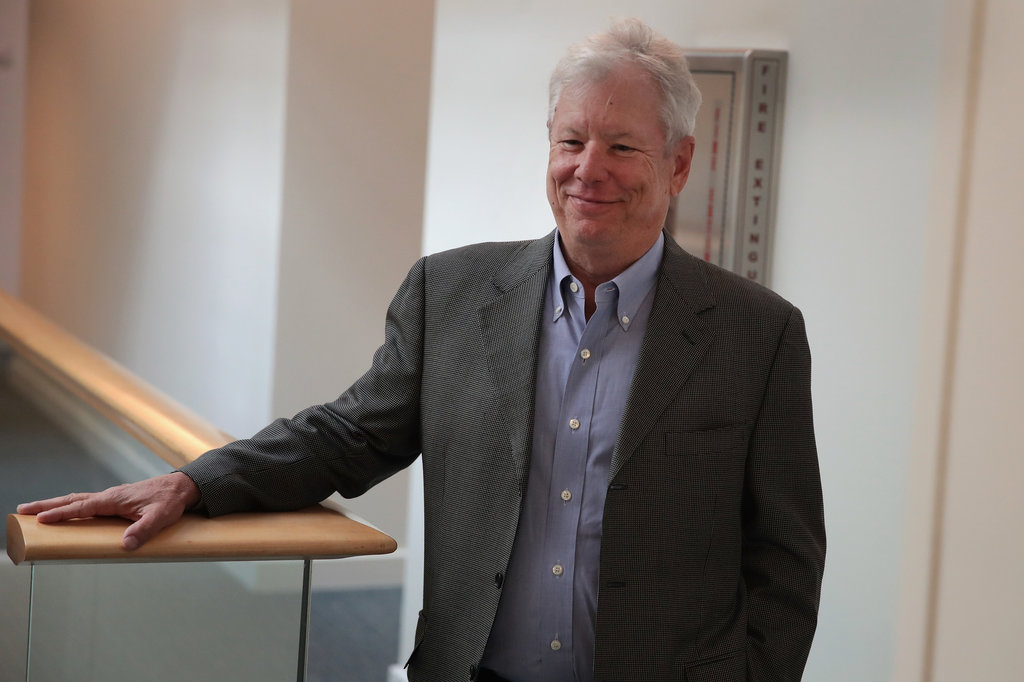Economics Nobel Prize 2017 and the Importance of Financial Planning
It’s a common belief that equity is the best long term investment option. Even data shows that. In any given period of 25 years, the annual returns given by our BSE stock index Sensex were between 15.09% and 18.78%. This means if you want to invest for a 25 year period, you can put all your money in the index and be sure that you get minimum 15% return per year. But, there is only a negligible chance that you’ll stick to this, because in a given year there are chances that the Sensex go down by even 50%. How many people will hold on to equity when there is such a big fall, even though they know that in the long term, equity gives higher returns?
On 9th October 2017, the Nobel Prize for Economics was awarded to Richard H Thaler, for his groundbreaking research which demonstrated how people make financial decisions according to their emotions and impulses rather than strictly adhering to logic and data.
Richard Thaler, professor at the Booth School of Business at the University of Chicago is a pioneer in the field of behavioral economics. Behavioral economics incorporates the study of psychology into the analysis of the decision-making behind an economic outcome.
Thaler’s research abolishes the concept of ‘Homo economicus’, the conceptual species of purely rational human beings that make only logical decisions. Their actions are driven only by logic and data. Most of the economic theories are made based on this aspect. Thaler through his experiments demonstrated that human decisions are also controlled by emotion and irrationality. Gut-feeling and sentiments influence their decision making on everything from impulsive splurging to retirement savings to buying insurance policies. He also said that, interestingly all these decisions are not guided by randomly irrational habits, but by predictive behavior.
According to his theory, things you own has got double its value from your perspective than from another person’s, who doesn’t own it. His experiment consisted of giving a set of students a coffee mug each and they were asked to assign a monetary value to it. Students who owned the mugs given to them gave the mugs twice the value, compared to those who didn’t own it.
Similarly, according to classical economics theory, more information should lead to better decision-making—in theory. But Thaler through his experiments in NFL draft, demonstrated that this is not always the case. In most cases, more data points and analytics makes people very overconfident that they may overlook many small distinctions and make wrong decisions.
So how is Thaler’s theory relevant in our day to day life? We all make decisions and promises to ourselves every day. We take New Year Resolutions every year. How many of us stick to it after January? Not many. We all might have experienced a war between the rational and irrational part of our brain, at least sometimes in our life. Whenever we see that expensive branded shirt in the mall after we promised ourselves about sticking on to a budget or when our neighbor buys a better car than us, we experience this dilemma.
When it comes to finances, we need a hand-holding to stick to our decisions. We need a guide who ensures that we refrain from taking emotional and uninformed decisions. This is where the importance of a financial advisor comes into play. A dedicated advisor not only helps in financial planning but also will continuously nudge the client stick with his plan.
As Richard Thaler points out, economic policies and financial plans must be made considering the human aspect of emotional judgments, rather than basing solely on number-crunching. This is exactly what we do at PrognoAdvisor. While we use algorithms and artificial intelligence to construct financial plans, our Certified Financial Planners intervene and configure strategies taking into account the client’s preferences, interests and concerns. Not only that, we also have a system that nudges our clients periodically to ensure that they convert their plans into actions.

Post Your Comments